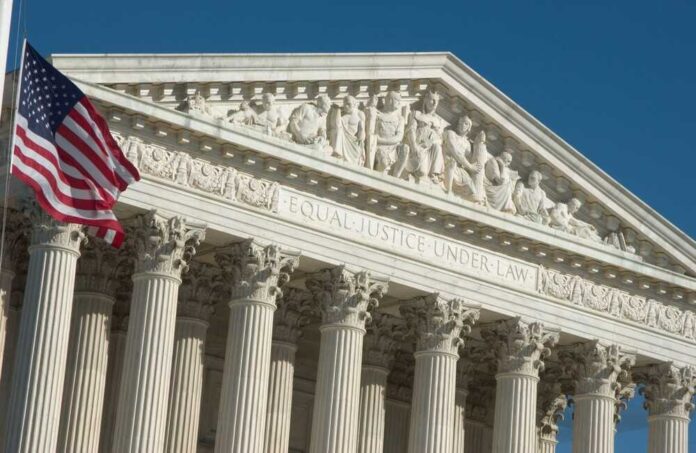
Potentially restoring common sense to a debate that has threatened women’s athletics nationwide, the Supreme Court is expected to right a massive wrong.
Specifically, the highest court in the land has agreed to hear cases that will determine whether biological males can compete in women’s sports.
Conservative states have fought to protect female athletes from unfair competition, while liberal courts have repeatedly blocked these commonsense protections.
The Court’s decision, expected by June 2026, could finally establish that biological differences matter in athletics.
More than half of U.S. states have enacted laws preventing transgender athletes from competing on female school sports teams.
These states have recognized the biological reality that males generally possess physical advantages over females in athletic competition.
Both Idaho and West Virginia passed such laws, only to have them blocked by lower courts from enforcing their bans against specific students.
The Supreme Court’s decision to hear these cases comes at a critical time when Americans are increasingly concerned about the fairness of allowing biological males to compete against women and girls.
West Virginia Attorney General JB McCuskey celebrated the Court’s decision to review the cases:
“It’s a great day, as female athletes in West Virginia will have their voices heard. The people of West Virginia know that it’s unfair to let male athletes compete against women; that’s why we passed this commonsense law preserving women’s sports for women.”
Idaho’s Attorney General Raúl Labrador expressed similar sentiments about his state’s groundbreaking legislation, which was the first of its kind in the nation.
“For too long, activists have worked to sideline women and girls in their own sports. Men and women are biologically different, and we hope the court will allow states to end this injustice,” Labrador stated.
The cases question whether these laws violate the 14th Amendment and Title IX, which prohibit sex discrimination in education.
The Biden administration claimed that blanket bans on transgender athletes are unlawful, continuing its pattern of prioritizing transgender ideology over women’s rights.
In contrast, the Trump administration implemented policies that recognized biological reality, including restrictions on transgender athletes in women’s sports.
The ideological divide on the issue is stark. The ACLU argues that such bans are discriminatory.
In turn, state officials have highlighted the practical realities facing female athletes across the country.
They noted the justices need to address a “growing trend of males identifying as females competing against – and beating – females in women’s sports across the country.”
The West Virginia case involves a transgender middle schooler, Becky Pepper-Jackson, who wanted to join a girls’ cross-country team.
In Idaho, the challenge came from Lindsay Hecox, a transgender athlete who sought to join the women’s cross-country team at Boise State University.
Both cases represent the larger conflict between transgender activism and the protection of women’s sports.
The National Collegiate Athletic Association has also restricted transgender athletes’ participation in women’s sports following an executive order during the Trump administration.
Its decision acknowledges the biological differences that create an uneven playing field.
The Supreme Court’s decision is expected by June 2026, with arguments likely to be heard this fall.
For female athletes across the country who have lost opportunities, scholarships, and recognition due to competing against biological males, this case represents their last hope.



















